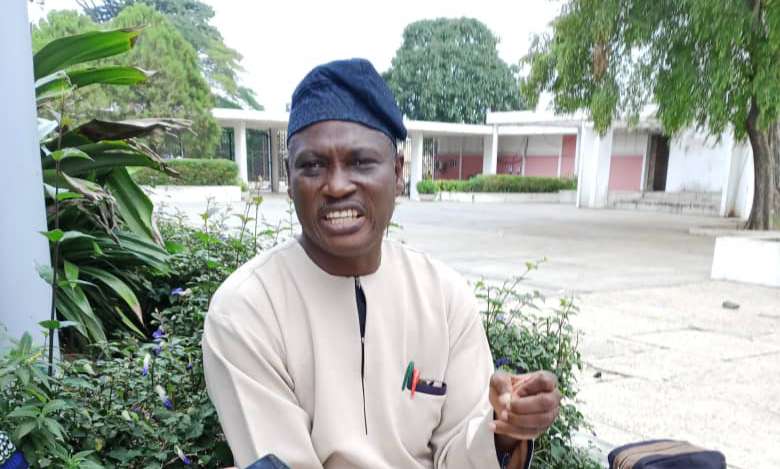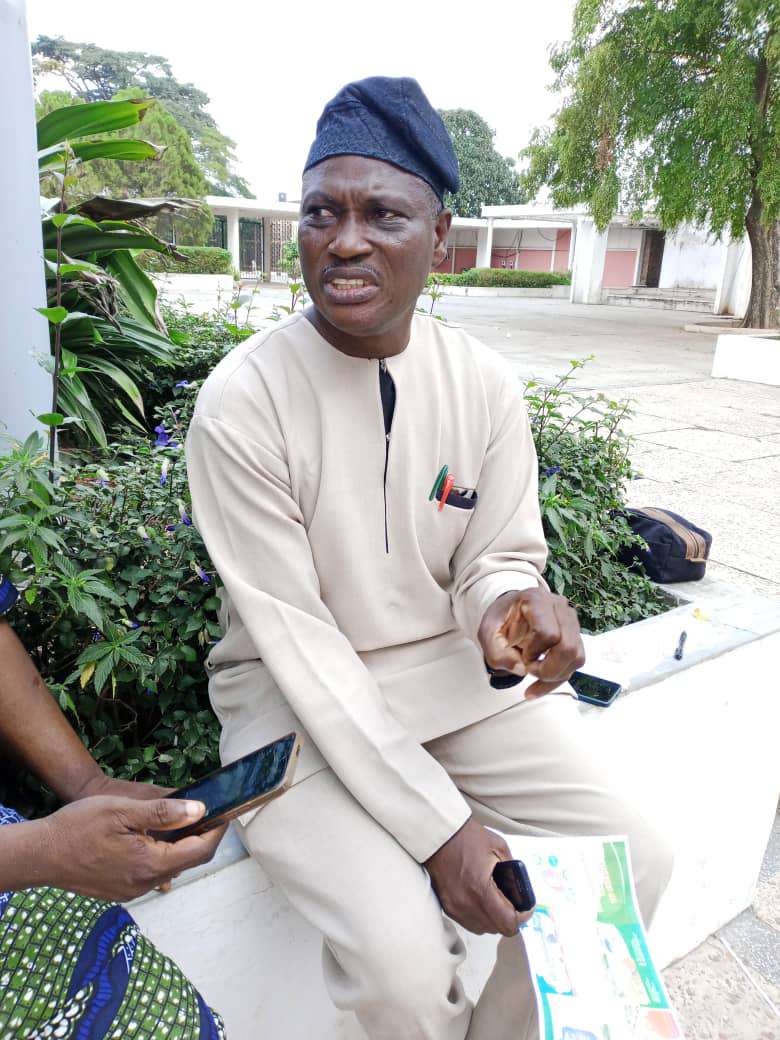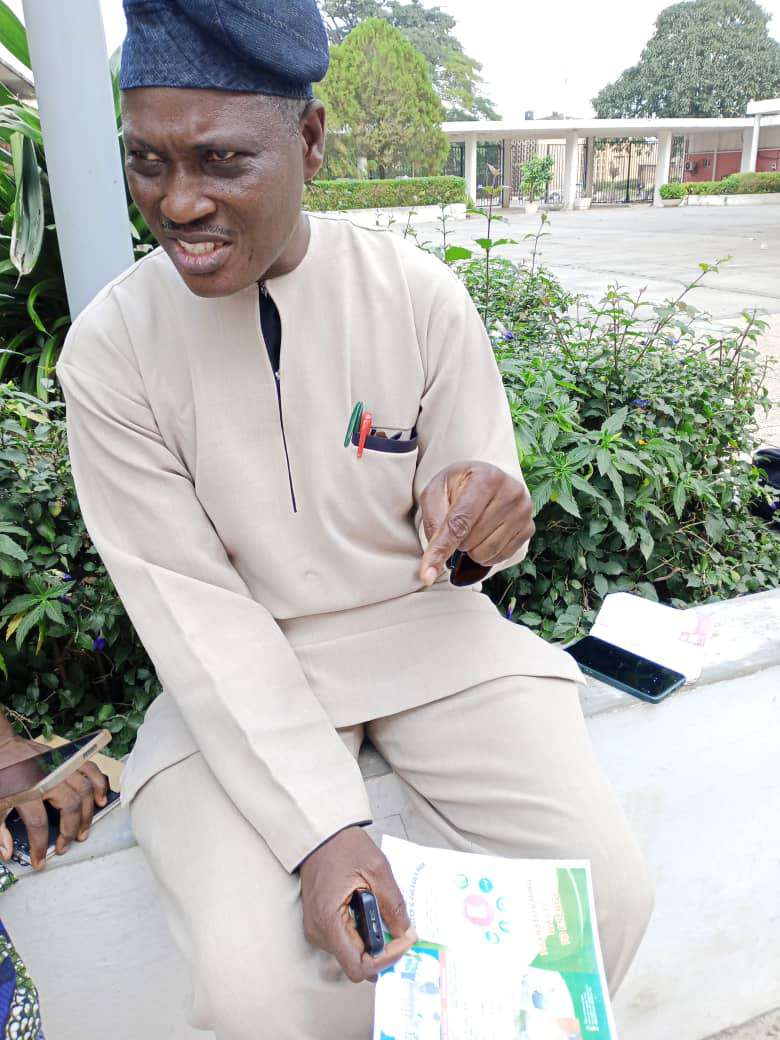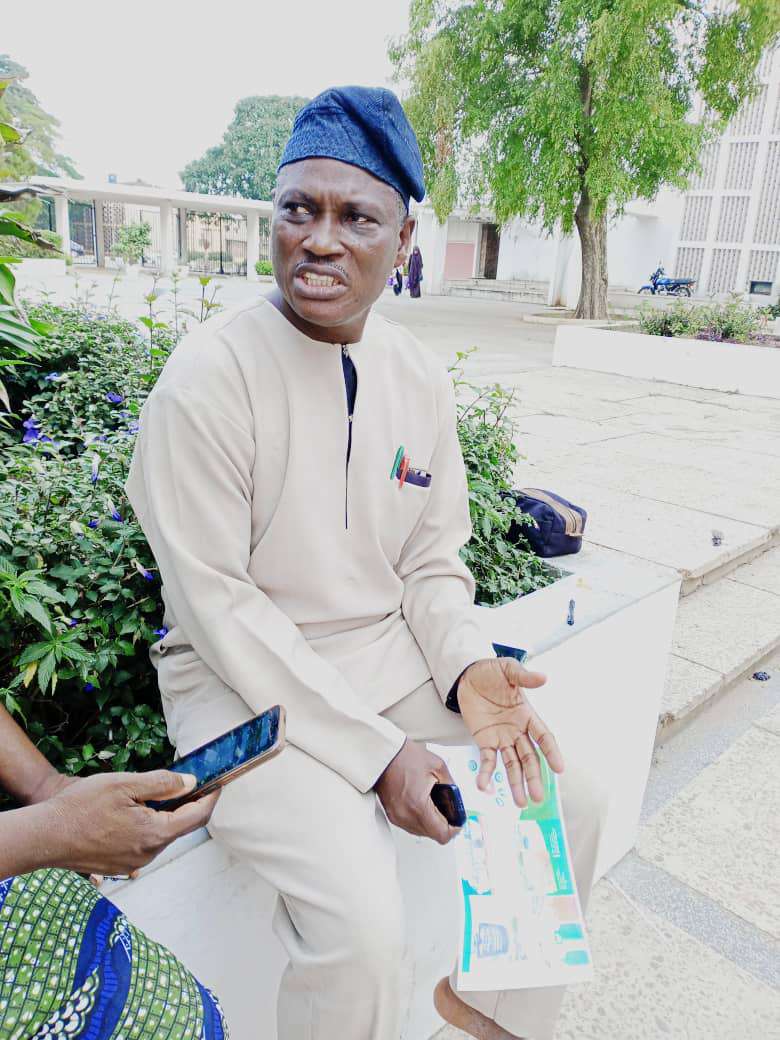Interview
“No political party in Nigeria today is progressive.” – Aderounmu

Dr. Adebimpe Aderounmu, a development practitioner, belongs to one of the ardent progressive families in the South West. Despite not being overtly partisan, he has consistently propagated progressive ideals as practiced by the late sage, Chief Obafemi Awolowo, and others.
He is also a researcher and currently the Secretary-General of Oke-Ogun Development Consultative Forum, the apex body of all socio-cultural organisations in the Oke-Ogun region of Oyo State, which has been championing the creation of Oke-Ogun State and advocating for the area to produce the next governor of Oyo State in 2027.
In this interview with Olusesan Laoye, he sheds light on the administration of Governor Seyi Makinde, the attitudes of the so-called progressives in Nigeria’s current political dispensation, the need for rotational governorship in Oyo State, the policies of President Bola Ahmed Tinubu, and the way forward for Nigeria.
Excerpts:
How will you describe the political situation in Oyo State?
Looking at the influence and personality of the governor of Oyo State, Engineer Seyi Makinde – whom many people believe has good relationships across parties – it is clear that his political alliances tend to shape the landscape of politics in Oyo State. In my opinion, the political atmosphere remains uncertain.
The crisis within the Peoples Democratic Party (PDP) at the national level still resonates. However, because we have a sitting governor from that party, it is not strange that PDP in Oyo State appears relatively stable. Yet, you and I know that it is not as stable as it should be.
Again, the governor’s relationship with the presidency and other parties tends to send signals to the APC about his possible influence there. Let us not forget that other parties aligned with him in the last election, and right now, we may not be able to clearly define where those parties belong in Oyo State. Some of them, I would not say are comatose, but they are not as active as expected.

Dr. Adebimpe Aderounmu
Generally speaking, the politics of Oyo State has not been very vibrant. The opposition is largely absent. At the national level, we still hear some talk – about Labour, PDP, ADC, and so on – even if not constructive. But in Oyo State, I do not see the proactive opposition that governance requires. That is the picture I see.
As for what may happen before 2027, I think it is too early to predict, as there will be alignments and realignments. Looking at political parties in the state, I have not been able to spot the so-called leaders and elders who serve as rallying points. Both in PDP and APC, I cannot find any. With that, politics in the state is unlikely to be interesting. That means there may not be a clearing house or any arrowhead in either party to provide direction. As long as that is lacking, a lot of surprises are expected in Oyo State come 2027.
Would you subscribe to the notion that the APC is in disarray in Oyo State without a strong arrowhead ahead of 2027?
I may not really say that because it is relative. How do I mean? The fact that APC lost an election and is still trying to pick up the pieces does not mean it cannot come together. I said relative because one party may be more in disarray compared to the other.
In PDP, because the party has the governor as leader, the level of disarray may not be as obvious as in the APC. But obviously, APC in Oyo State is in disarray as we speak. As such, the party has a lot to do if it hopes to regain power in 2027.
Who do we blame for this?
It is difficult to apportion blame. They prepared for an election, they had their candidate, but unfortunately, the outcome is what we are discussing today.
By and large, I think APC’s problem has to do with vendetta, lack of team spirit, selfishness, and arrogance among some gladiators in the party. The struggle for power is another factor, as it shows that people are not coming together to build the party but are only interested in what they can use it for.
APC probably needs to call a more realistic stakeholders’ meeting to discuss the party’s future. Maybe they have been meeting behind closed doors, but personally, I have not seen any reflection of that. If members are truly interested, it should not be difficult to come together strongly and launch a comeback. The party needs sincere leaders.
How would you describe the progressives in Oyo State vis-à-vis Nigeria as a whole?

Dr. Adebimpe Aderounmu
In Nigeria, I have learnt to be very careful using the word “progressives.” Which political party in Nigeria truly has that ideology today? I cannot finger one because of the frequent cross-carpeting. People join parties for whatever reasons, as long as they can pay their dues.
There are, however, some progressively minded individuals across party lines. If these people were to come together in significant numbers and settle in one party, building it as a truly progressive platform, then we could talk about progressives.
But as far as ideology in Nigeria today is concerned, I do not see progressives as we had in the days of Chief Obafemi Awolowo. The same applies in Oyo State. What Nigeria needs now are political parties with strong ideologies. That would help reduce indiscriminate cross-carpeting by politicians.
In Oyo State, Ibadan has almost always produced the governor, except for the late Alao Akala from Ogbomoso. What does this mean for other zones, especially Oke-Ogun?
For me, rotational governorship would have been unnecessary if those in government were sincere and development-conscious. But with the prevailing circumstances, people should not see it as alien. It is normal where you want teamwork, inclusion, fairness, and equity.
Although it is not entrenched in the constitution, rotational governorship is a matter of fairness and justice. Many states practice it without written laws. Even Lagos has streamlined it across zones. Oyo State cannot be different.
Ibadan should not take pride in holding onto power indefinitely. That does not show inclusiveness and could breed bitterness. It calls for other zones to rally together and push for equity. Oke-Ogun, for example, has long been relegated to producing deputies, but the deputy governor has no significant constitutional role. If Oke-Ogun continues to be deputy perpetually, it would be dangerous.
Rotational governorship would give every zone a sense of belonging and allow each to present its developmental agenda. It would also discourage the feeling of being second-class in the state.
What about the agitation for the creation of Oke-Ogun State?
Oke-Ogun is still on its own, asking for a separate state. It has not been lumped with others. Some groups may have included Oke-Ogun in their requests without consultation, but that does not reflect our official position.
The agitation for Oke-Ogun State is the oldest in Oyo. With its mineral and human resources, fertile land, and population, Oke-Ogun has every reason to become a state. We have consistently presented memoranda at constitutional amendment exercises since 1999, with Agunrege proposed as the capital.
If created, Oke-Ogun would in a short time become one of the best states in Nigeria. We believe in pursuing this goal peacefully, but we are hopeful and expectant that it will be granted soon.
Governor Makinde recently secured approval for a ₦300 billion loan. Do you think this is justified?
Those in favour will always find justification, but for me, as a development practitioner, loans should be evaluated against past performance. Personally, I oppose it. There is little evidence that previous loans have delivered tangible benefits.
For instance, the Akufo project was linked to an earlier loan, but six years down the line, where is Akufo? We keep hearing about agribusiness, but food security is not evident. We hear of investors, but local entrepreneurs remain inactive. Without stimulating local enterprise, foreign investors cannot sustain growth.
Community roads, which are critical to economic development, remain neglected while flagship projects dominate. Timing and priorities of these loans are questionable.
What is your assessment of President Bola Tinubu’s government so far?

Dr. Adebimpe Aderounmu
The government has taken bold steps and appears bullish where necessary, but improvements are needed in managing policies to reduce the hardship on ordinary Nigerians.
The tax reforms look promising, but implementation must have a human face. Pensioners, for example, should not be taxed without income adjustments.
Policies like NELFUND loans for students and the removal of fuel subsidy are positive, but the government must track benefits and cushion the impact on citizens.
Overall, the government is trying but can do much better. Perhaps President Tinubu needs more vibrant and patriotic hands to work with so that Nigerians can feel the impact of his efforts in the last two years.


